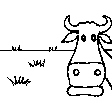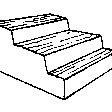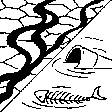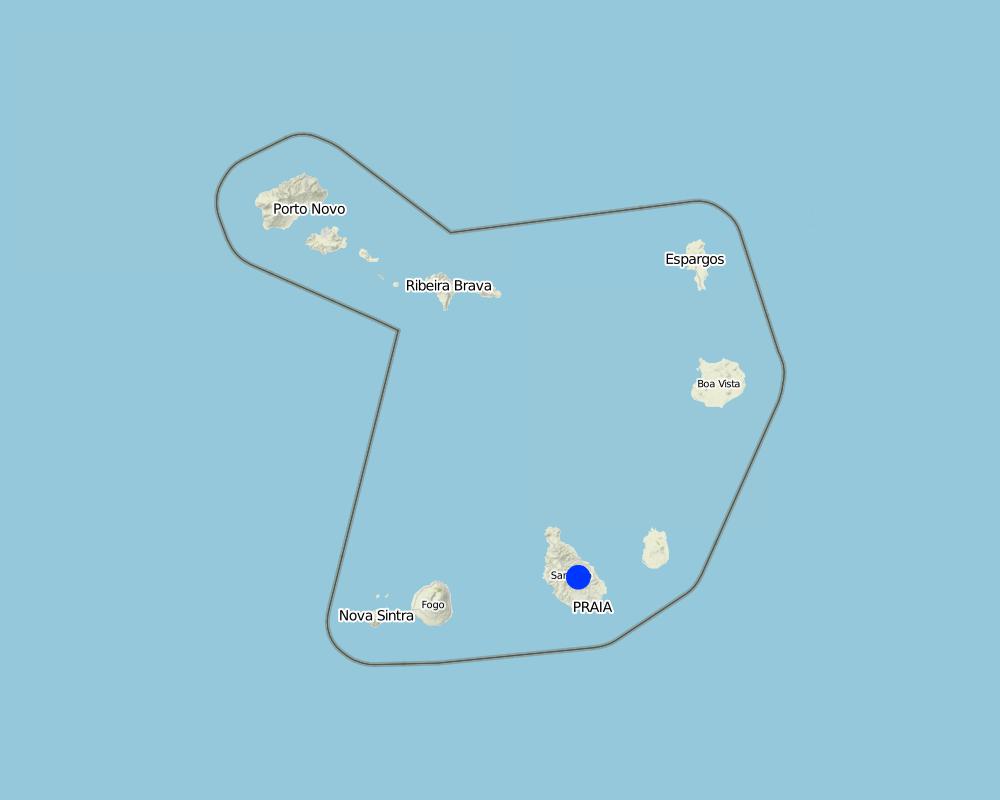Muret [佛得角]
- 创建:
- 更新:
- 编制者: Jacques Tavares
- 编辑者: –
- 审查者: Fabian Ottiger, Alexandra Gavilano
Muretos, Arretos
technologies_1572 - 佛得角
查看章节
全部展开 全部收起1. 一般信息
1.2 参与该技术评估和文件编制的资源人员和机构的联系方式
SLM专业人员:
Varela Larissa
INIDA
有助于对技术进行记录/评估的机构名称(如相关)
INIDA (INIDA) - 佛得角1.3 关于使用通过WOCAT记录的数据的条件
编制者和关键资源人员接受有关使用通过WOCAT记录数据的条件。:
是
1.4 所述技术的可持续性声明
这里所描述的技术在土地退化方面是否存在问题,导致无法被认为是一种可持续的土地管理技术?:
否
2. SLM技术的说明
2.1 技术简介
技术定义:
Small walls of stone built on hillsides with slopes generally greater than 40%, second-level curves, which ensures a good infiltration and contributes to reducing the erosive power of water runoff.
2.2 技术的详细说明
说明:
Are usually constructed of stone with a height of 80 to 90 cm and width of 40 to 50 cm and a foundation of 30 cm, usually built on hillsides with slopes greater than 40%. The space between two consecutive Muret varies between six (6) and 15 (fifteen) meters depending on slope, type of soil and plant cover and frequency of rainfall. Top Order capture water runoff by encouraging the development of plant species. When complemented by banquets and entertainment channels to facilitate drainage of surface water to the adjacent lines. Also this technique can be complemented with vegetative measures.
This technique is used mainly for agricultural land in rain with the aim of protecting slopes from erosion, and to practice the culture of Canjanus cajan and other forage species.
2.5 已应用该技术的、本评估所涵盖的国家/地区/地点
国家:
佛得角
区域/州/省:
Ribeira Seca
有关地点的进一步说明:
S. Lourenço; S. Domingos; Picos; S. Cruz
具体说明该技术的分布:
- 均匀地分布在一个区域
如果技术均匀分布在一个区域,则指定覆盖的区域(单位为平方千米):
71.5
注释:
Total area covered by the SLM Technology is 71.5 km2.
Map
×2.6 实施日期
如果不知道确切的年份,请说明大概的日期:
- 50多年前(传统)
2.7 技术介绍
详细说明该技术是如何引入的:
- 通过项目/外部干预
3. SLM技术的分类
3.1 该技术的主要目的
- 减少、预防、恢复土地退化
3.2 应用该技术的当前土地利用类型
同一土地单元内混合使用的土地::
是
具体说明混合土地使用(作物/放牧/树木):
- 农牧业(包括农牧结合)

农田
- 一年一作
- 多年一作(非木材)
具体说明:
Longest growing period in days: 90, Longest growing period from month to month: Aug - Oct

牧场
粗放式放牧:
- 半游牧畜牧业
- 经营牧场
注释:
Major land use problems (compiler’s opinion): Loss of soil by water runoff, reducing its thickness and fertility
Semi-nomadism / pastoralism: Yes
Ranching: Yes
Livestock is grazing on crop residues
3.3 由于技术的实施,土地使用是否发生了变化?
由于技术的实施,土地使用是否发生了变化?:
- 否(继续问题3.4)
3.4 供水
该技术所应用土地的供水:
- 雨养
3.5 该技术所属的SLM组
- 农业林学
- 横坡措施
3.6 包含该技术的可持续土地管理措施

结构措施
- S5:大坝、集水斗、水池
- S6:墙、障碍物、栅栏、围墙
3.7 该技术强调的主要土地退化类型

土壤水蚀
- Wt:表土流失/地表侵蚀
- Wg:冲沟侵蚀/沟蚀
- Wo:场外劣化效应

水质恶化
- Ha:干旱化
- Hs:地表水良变化
- Hq:地下水水质下降
注释:
Main causes of degradation: soil management (Inappropriate use of many areas), crop management (annual, perennial, tree/shrub) (Cultivation of maize and groundnut in areas unsuitable especially in highly inclined slopes), over-exploitation of vegetation for domestic use (Cutting of trees for firewood production), Heavy / extreme rainfall (intensity/amounts) (Chuvas irregulares, de pouca duração mas de grande intesidade na maioria das vezes), droughts, poverty / wealth (A pobreza conduz à falta de conhecimento, e a necessidade de um meio de sustento que poderá ser qualquer recurso com mercado), education, access to knowledge and support services (A good education and awareness to help consumers and new opportunities for livelihood for the owners.)
Secondary causes of degradation: deforestation / removal of natural vegetation (incl. forest fires), overgrazing, population pressure (Large population densities lead to over-exploitation of limited resources)
3.8 防止、减少或恢复土地退化
具体数量名该技术与土地退化有关的目标:
- 防止土地退化
- 减少土地退化
4. 技术规范、实施活动、投入和成本
4.1 该技术的技术图纸
技术规范(与技术图纸相关):
Muret built on land with slopes of 50% with a espassamento of 10 m.
Location: São Jorge dos Órgãos. Cabo Verde
Technical knowledge required for field staff / advisors: moderate (But he must understand the technique and its benefits, he may be to implement it by advice from a specialist.)
Technical knowledge required for land users: high (Should be well briefed)
Main technical functions: control of dispersed runoff: retain / trap
Secondary technical functions: control of dispersed runoff: impede / retard
Wall/ barrier
Vertical interval between structures (m): 5
Spacing between structures (m): 10
Depth of ditches/pits/dams (m): 0.9
Width of ditches/pits/dams (m): 0.4
Length of ditches/pits/dams (m): 100
Construction material (stone): structure made of stone, so this feature should be in place
Slope (which determines the spacing indicated above): 50%
Lateral gradient along the structure: 0.3%
作者:
Jailson Bentub
4.2 有关投入和成本计算的一般信息
其它/国家货币(具体说明):
ECV
如相关,注明美元与当地货币的汇率(例如1美元=79.9巴西雷亚尔):1美元=:
80.0
注明雇用劳工的每日平均工资成本:
5.94
4.3 技术建立活动
| 活动 | 时间(季度) | |
|---|---|---|
| 1. | Excavation | |
| 2. | Foundation | |
| 3. | Elevation |
4.4 技术建立所需要的费用和投入
| 对投入进行具体说明 | 单位 | 数量 | 单位成本 | 每项投入的总成本 | 土地使用者承担的成本% | |
|---|---|---|---|---|---|---|
| 劳动力 | Labour | ha | 1.0 | 11718.0 | 11718.0 | |
| 设备 | Tools | ha | 1.0 | 236.0 | 236.0 | |
| 技术建立所需总成本 | 11954.0 | |||||
| 技术建立总成本,美元 | 149.43 | |||||
注释:
Duration of establishment phase: 3 month(s)
4.7 影响成本的最重要因素
描述影响成本的最决定性因素:
Labor; slope.
5. 自然和人文环境
5.1 气候
年降雨量
- < 250毫米
- 251-500毫米
- 501-750毫米
- 751-1,000毫米
- 1,001-1,500毫米
- 1,501-2,000毫米
- 2,001-3,000毫米
- 3,001-4,000毫米
- > 4,000毫米
农业气候带
- 半湿润
- 半干旱
5.2 地形
平均坡度:
- 水平(0-2%)
- 缓降(3-5%)
- 平缓(6-10%)
- 滚坡(11-15%)
- 崎岖(16-30%)
- 陡峭(31-60%)
- 非常陡峭(>60%)
地形:
- 高原/平原
- 山脊
- 山坡
- 山地斜坡
- 麓坡
- 谷底
垂直分布带:
- 0-100 m a.s.l.
- 101-500 m a.s.l.
- 501-1,000 m a.s.l.
- 1,001-1,500 m a.s.l.
- 1,501-2,000 m a.s.l.
- 2,001-2,500 m a.s.l.
- 2,501-3,000 m a.s.l.
- 3,001-4,000 m a.s.l.
- > 4,000 m a.s.l.
5.3 土壤
平均土层深度:
- 非常浅(0-20厘米)
- 浅(21-50厘米)
- 中等深度(51-80厘米)
- 深(81-120厘米)
- 非常深(> 120厘米)
土壤质地(表土):
- 粗粒/轻(砂质)
- 中粒(壤土、粉土)
表土有机质:
- 中(1-3%)
如有可能,附上完整的土壤描述或具体说明可用的信息,例如土壤类型、土壤酸碱度、阳离子交换能力、氮、盐度等。:
Soil fertility: Low (ranked 1) and medium (ranked 2)
Soil drainage/infiltration: Medium (ranked 1) and good (ranked 2)
Soil water storage capacity: Low (ranked 1, skeletal soils with low storage capacity) and medium (ranked 2)
5.4 水资源可用性和质量
地下水位表:
5-50米
地表水的可用性:
中等
关于水质和水量的注释和进一步规范:
Ground water table: Also >50m (ranked 2)
Availability of surface water: Medium (ranked 1, Often through galleries, springs, wells and dams) and poor/none (ranked 2)
5.5 生物多样性
物种多样性:
- 低
5.6 应用该技术的土地使用者的特征
生产系统的市场定位:
- 生计(自给)
- 混合(生计/商业)
非农收入:
- 收入的10-50%
相对财富水平:
- 贫瘠
- 平均水平
机械化水平:
- 手工作业
- 机械化/电动
说明土地使用者的其他有关特征:
Population density: 50-100 persons/km2
Annual population growth: > 4% (0.5%).
80% of the land users are average wealthy (50%).
3% of the land users are poor (1%).
Level of mechanization: Manual work (Ranked 1, often through galleries, springs, wells and dams) and mechanized (ranked 2, use of tractor in some plots)
5.7 应用该技术的土地使用者使用的平均土地面积
- < 0.5 公顷
- 0.5-1 公顷
- 1-2 公顷
- 2-5公顷
- 5-15公顷
- 15-50公顷
- 50-100公顷
- 100-500公顷
- 500-1,000公顷
- 1,000-10,000公顷
- > 10,000公顷
5.8 土地所有权、土地使用权和水使用权
土地所有权:
- 个人,有命名
土地使用权:
- 租赁
- 个人
用水权:
- 社区(有组织)
- 个人
5.9 进入服务和基础设施的通道
健康:
- 贫瘠
- 适度的
- 好
教育:
- 贫瘠
- 适度的
- 好
技术援助:
- 贫瘠
- 适度的
- 好
就业(例如非农):
- 贫瘠
- 适度的
- 好
市场:
- 贫瘠
- 适度的
- 好
道路和交通:
- 贫瘠
- 适度的
- 好
饮用水和卫生设施:
- 贫瘠
- 适度的
- 好
金融服务:
- 贫瘠
- 适度的
- 好
6. 影响和结论性说明
6.1 该技术的现场影响
社会经济效应
生产
作物生产
饲料生产
生产故障风险
生产区域
收入和成本
工作量
社会文化影响
SLM/土地退化知识
Improved livelihoods and human well-being
注释/具体说明:
By implementing this technique it contributes to the increase of yield and consequently to that of the livelihoods of the benefited populations.
生态影响
水循环/径流
水量
水质
水的回收/收集
地下水位/含水层
土壤
土壤水分
土壤流失
6.2 该技术的场外影响已经显现
水资源可用性
下游洪水
下游淤积
地下水/河流污染
6.3 技术对渐变气候以及与气候相关的极端情况/灾害的暴露和敏感性(土地使用者认为的极端情况/灾害)
渐变气候
渐变气候
| 季节 | 增加或减少 | 该技术是如何应对的? | |
|---|---|---|---|
| 年温度 | 增加 | 好 |
气候有关的极端情况(灾害)
气象灾害
| 该技术是如何应对的? | |
|---|---|
| 局地暴雨 | 好 |
6.7 该技术的优点/长处/机会
| 编制者或其他关键资源人员认为的长处/优势/机会 |
|---|
| Muret are effective in the stabilization of slopes. |
| Improving significantly the infiltration of rain water especially when complemented with vegetative measures. |
6.8 技术的弱点/缺点/风险及其克服方法
| 编制者或其他关键资源人员认为的弱点/缺点/风险 | 如何克服它们? |
|---|---|
| Relatively expensive and laborious process. |
7. 参考和链接
7.1 信息的方法/来源
- 实地考察、实地调查
- 与土地使用者的访谈
7.2 参考可用出版物
标题、作者、年份、ISBN:
Técnica de Conservação de Solos e Água em Cabo Verde, MPAR &CILSS, 1994
标题、作者、年份、ISBN:
Conservação de Solos e Água (Teoria e Prática), Sabino, António Advino, 1991
可以从哪里获得?成本如何?
Library of CFA - INIDA
标题、作者、年份、ISBN:
Field Trip Guid - DESIRA , INIDA, Cape Verde, 2008
可以从哪里获得?成本如何?
Library of INIDA
标题、作者、年份、ISBN:
Relatório de Avaliação Inicial Do Impacto das Realizações de Conservvação de Solos e Água em 1993 do PROJECTO WDP, WARD, 1995
可以从哪里获得?成本如何?
Library of INIDA
链接和模块
全部展开 全部收起链接
无链接
模块
无模块


